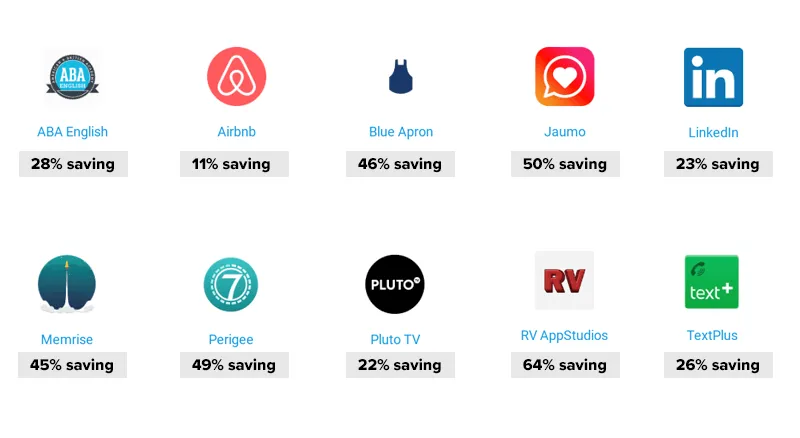

Did you know that the Android App Bundle has become the gold standard for publishing on Google Play? Dig into its benefits.
When I first heard about this new upload format known as the App Bundle, I was very excited! Many of the issues that we developers faced like building APKs to target different API versions, device types, and so on- are now passed on Google Play.
All this is being done through the Android app bundle app distribution format. Let us dive into what Android’s new, official publishing format is all about.
Android launched a new official publishing format called android app bundles (.aab) and it offers a more efficient way to build and release your app. It also lets you easily deliver a great user experience in a small-sized app, this in turn also improves install success rate and reduces uninstallation rates.
Did you know that the android app bundle has become the gold standard for publishing on Google Play? Over 600,000 apps and games currently use the app bundle in production, representing over 40% of all releases on Google Play including Netflix.
Let’s look into the benefits of app bundles now.
App bundles help in reducing a significant amount of application size! On average, developers have witnessed a 20% size savings compared to APK. You can visit the new app size report in the google play console to see how much your app could save.
Did you know that, with the help of app bundle development, Adobe reduced the size of Adobe Acrobat Reader by 20%? Not only this, but some of these size savings by early adopters of app bundles show some jaw-dropping results. These results are what make Android app bundles a great way to build Android Go apps:

Keeping the above data in mind, many entrepreneurs are planning to start a mobile app centred business and investors are funding different types of mobile apps.
Apps increasing size would not matter much if we had unlimited storage in our devices. But, as we know, it’s not the case. As the size of an app increases the number of installations decrease!
As a ripple effect of size savings with the help of xamarin android app bundle will increase the app installations. This also resulted in the increase of update rates, and very fewer uninstallations.
App bundle development in android allows you to build one artifact that includes all of your app’s collected code, resources, and native libraries. So, you are no longer required to build, sign, upload, and manage version codes for multiple APKs. Hence, the efficiency is increased if you install an android app bundle on your device.
Your app can be efficiently tailored to each device by Google Play which means the process of downloading and installing the app becomes faster.
With the help of the android studio app bundle, you can prepare for the 64-bit requirement without increasing the size of your app. As a result, Play will deliver the appropriate native code required for each device.
The entire process of creating an app is accelerated. From building dynamic and independent modules to designing, testing, and releasing it. The engineering velocity gets a major boost with the android app bundle unity.
During android app development several manual efforts can be completely automated. Once the development is done, its link is uploaded and shared on a specific Slack channel automatically. No manual intervention is required.
App bundles have introduced us to a new concept known as dynamic delivery. One can deliver conditional features at the time of installation on the basis of properties like device features (e.g., AR/VR), user’s country, or device’s version. Users are also given the facility to install features on an on-demand mode instead of the install time. They can even uninstall the features they no longer need.
Unlike APKs, app bundles are a publishing format that entails all of your app’s codes. So, it cannot be deployed directly to a device. With the help of the android studio, creating a project as a signed app bundle is just a few clicks away!
Step-1: Start with downloading Android Studio 3.2 or higher. It is the simplest way to build app bundles.
Step-2: Add support for Play Feature Delivery by including a base module, organizing code and resources for configuration APKs, and, optionally, adding feature modules.
Step-3: Now, start building an Android App Bundle using Android Studio. You can even deploy the application onto a connected device from the app bundle through modification of your debug/run configuration and selection of the ‘deploy APK from app bundle’ option.
Step-4: Testing and publishing your app bundle will be the final step.
Once you create the android app bundle, you should test how Google Play will use it to generate APKs and how those APKs will behave when deployed to a device. You can use the following methods to test the same:
The primary programming language used for Android app development is Java. It has been the traditional language for Android development for many years. However, since the introduction of Android Studio, Kotlin has gained popularity and is now considered the preferred language for Android development. Other languages, such as C++ and Python, can also be used for specific purposes within an Android app.
The Android App Bundle is an official publishing format introduced by Android. It provides a more efficient way to build and release apps. It allows developers to easily deliver a great user experience in a small-sized app, improving install success rate and reducing uninstallation rates.
On average, developers have witnessed a 20% size savings compared to APKs when using app bundles. Adobe, for example, reduced the size of Adobe Acrobat Reader by 20% with the help of app bundle development.
With app bundle development, you can build one artifact that includes all of your app's code, resources, and native libraries. This eliminates the need to build, sign, upload, and manage multiple APKs, increasing efficiency.